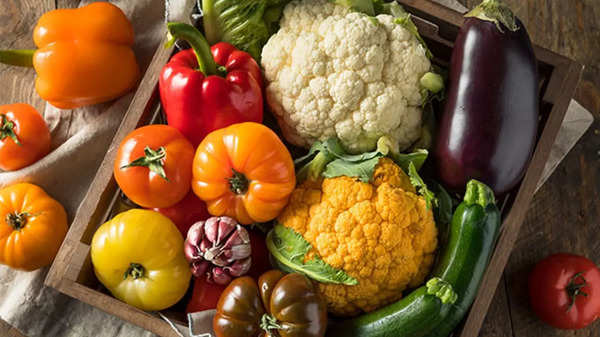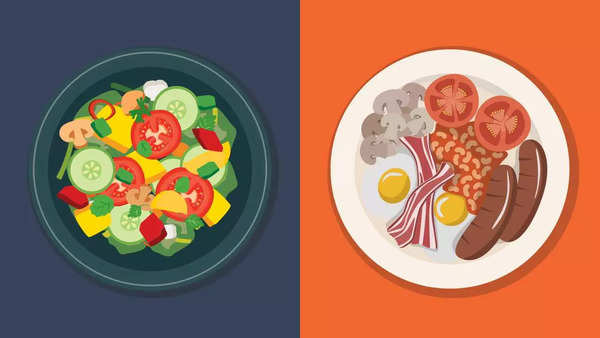Raw food enthusiasts argue that the natural enzymes and vitamins present in uncooked foods remain intact, offering maximum nutritional benefits.On the other hand, cooking proponents highlight the potential benefits of certain cooking methodssuch as increased digestibility and enhanced absorption of nutrients.
So which do you think is better? Cooked or raw? Let us find out

Benefits of cooked food
Cooking food provides various benefits, impacting both its nutritional value and overall digestibility. Here are some advantages of consuming cooked food:
Enhanced nutrients: Cooking can break down the cell walls of plants and the protein structures of meats, making nutrients more accessible for absorption. This can lead to increased bioavailability of essential vitamins and minerals.
Improved digestibility: Cooking softens food, making it easier to chew and digest. It can also break down certain fibers and proteins that might be challenging for the digestive system to process in their raw form.
Energy release: The cooking process can release more energy from carbohydrates, allowing the body to absorb and utilize the nutrients more efficiently. This is particularly relevant for foods like grains and starchy vegetables.
Reduced anti-nutrients: Cooking can neutralize or reduce the presence of anti-nutrientssuch as lectins and phytic acid, which can interfere with the absorption of minerals in the body.
Enhanced flavor and aroma: Cooking transforms the taste and aroma of food, making it more appealing to the senses. This can contribute to a more enjoyable and satisfying eating experience.
Improved food safety: Cooking eliminates or reduces harmful bacteria, parasites, and pathogens present in raw food, reducing the risk of foodborne illnesses.
Gaza on Verge of Collapse: Palestinians face acute food, water shortages, WHO concerned
Culinary diversity: Cooking allows for a wide range of culinary techniques, flavors, and textures. It opens up possibilities for creating diverse and culturally rich dishes.
Extended shelf life: Certain cooking methods, such as boiling, baking, or canning, can help preserve food and extend its shelf life, reducing food wastage.
How about raw food?
However, consuming raw foods offers a range of potential health benefits, as they retain their natural state and are not exposed to the heat of cooking. Here are some advantages of incorporating raw foods into your diet:
Preservation of nutrients: Raw foods often contain higher levels of certain vitamins, minerals, and enzymes compared to their cooked counterparts. The natural state of these nutrients is preserved, contributing to optimal nutritional content.
Enzyme retention: Raw foods contain enzymes that aid in digestion and metabolism. These enzymes are often destroyed or altered by heat during cooking, but in raw foods, they remain intact, potentially supporting the digestive process.
Increased fiber intake: Raw fruits, vegetables, and nuts are rich in dietary fiber, which aids in digestion, promotes a feeling of fullness, and supports gut health. Fiber also helps regulate blood sugar levels.
Hydration: Many raw foods, such as fruits and vegetables, have high water content, contributing to hydration. Staying hydrated is crucial for various bodily functions, including digestion, circulation, and temperature regulation.
Improved digestive health: The fiber and natural enzymes present in raw foods can support digestive health by promoting regular bowel movements and a healthy gut microbiome.

Weight management: Raw foods are often nutrient-dense and lower in calories, making them a favorable choice for those looking to manage their weight. The fiber content also contributes to a feeling of satiety.
Reduced oxidative stress: Some cooking methods can generate free radicals, contributing to oxidative stress. Raw foods, rich in antioxidants, can help combat oxidative stress and reduce the risk of chronic diseases.
Skin Health: The vitamins and antioxidants present in raw foods may contribute to healthier skin by promoting collagen production, reducing inflammation, and protecting against oxidative damage.
Alkalizing properties: Certain raw foods, especially fruits and vegetables, have alkalizing effects on the body, potentially helping to balance pH levels and reduce the risk of chronic diseases associated with acidity.





